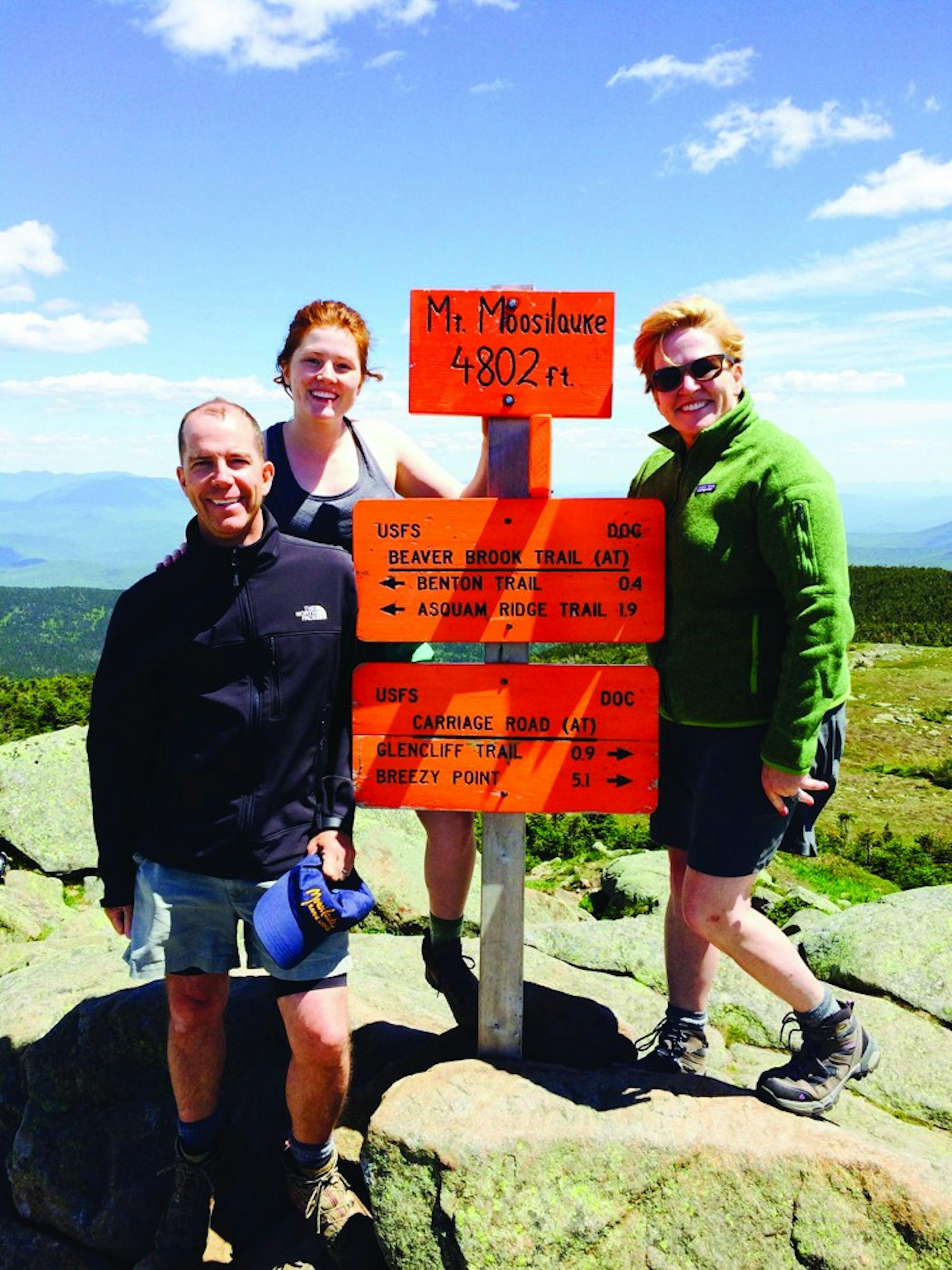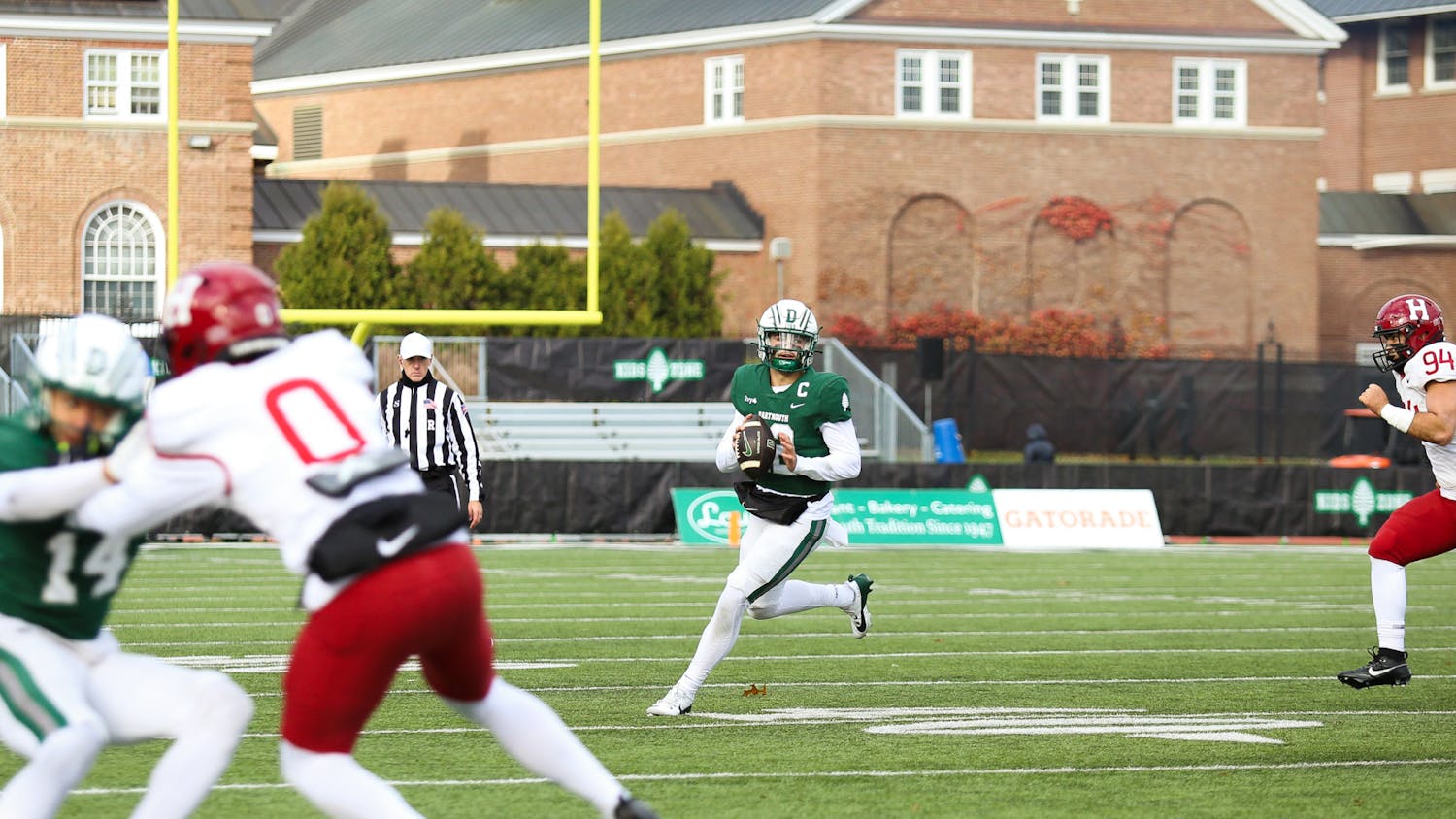This article was featured in the 2017 Homecoming Issue.
Nine percent of students accepted to the Class of 2021 are children of Dartmouth undergraduate alumni.
This is an increase from the 8.3 percent, almost 8 percent and 8.1 percent reported of the Classes of 2018, 2019 and 2020, respectively. The experiences of these students are unique in that they face different factors when deciding to come to Dartmouth: They may arrive at Dartmouth with already-established connections, and they also may experience some negative reactions to their parents’ connections to the school.
The parents of Ellie Mitchell ’20 both attended Dartmouth: her mother is a member of the Class of 1992, and her father is a member of the Class of 1993. Dartmouth was the last college she visited during her college search process, and she decided to attend after staying overnight with a relative.
During her search, Mitchell often felt like many schools she visited felt like smaller versions of her hometown of Greenwich, Connecticut. She had hoped to find a college with amazing people unlike anyone from Greenwich, and she said that she found that at Dartmouth.
“I met this girl … who had never been off the reservation before she got a scholarship to come to Dartmouth.” Mitchell said. “She was just so inspiring and interesting like no one I had ever met before. I really wanted to be influenced and surrounded by people with different experiences than me.”
Mitchell explained that she has received a variety of reactions when they learn that her parents attended Dartmouth.
“Some people think [being a legacy student is] really awesome, and then I think other people fight me because of it — because it seems that my accomplishment of getting into Dartmouth was lessened because of my parents,” Mitchell said.
She remembers an alumni brunch her freshman year that she attended with her friends, and she met someone who had known her father. After that, she noticed her friends acting differently towards her.
However, she does feel that she benefits from knowing people in the area when she has health issues.
Lela Gannon ’18 has grown up hearing about Dartmouth because her parents would come to reunions for each of their classes. The Moosilauke Ravine Lodge became a very special place for her, and she even had her seventh birthday at the Lodge.
Her family also lives in the area. Because of this, she feels very comfortable on campus.
However, when it came to deciding on a college, she didn’t want to go to Dartmouth because it was so connected with her family. Eventually, when attending the High Mountain Institute in high school, one of her teachers, William Corbett ’10, suggested she attend Dartmouth.
“It kind of changed how I thought about the school,” Gannon said. “Before, I had just thought of it as a part of my family’s history and a part of my history but not necessarily something that spoke to me personally. But then, when I actually got around to junior year … Dartmouth had a lot of the qualities that I was looking for.”
Gannon says her status as a legacy student has mostly had positive effects, providing her resources she might not have had otherwise. She has also participated in similar traditions to her parents. For example, when she led the First-Year Trip climb and hike for the third time this past year, her father was helping with the renovations of Nunnemacher Cabin, where her trip was headed.
“He knew we were going to be there and actually raided my trip with a watermelon,” Gannon said. “It was so funny and so cute, and he talked to all my trippees. That was a trip raid 30 years in the making.”
Conner Ueberroth ’19 is the son of Keri Ueberroth ’89. He said that his mother loved Dartmouth, and he was initially attracted to the school because of its beauty and strong finance program. However, one of the major reasons he did not want to come to Dartmouth was because he was estranged from his father, Jeff Thomas ’89, who is also an alumnus. Since he made his decision, though, he thinks he has had a mostly positive experience.
“I think the Dartmouth experience has changed a lot in the last, say, 30 years — more than [in an] average 30-year interval.” Ueberroth said.
He believes that his experience has been very dissimilar from his parents’ experiences. Ueberroth said that, for example, Dartmouth used to be a much more conservative school and that the College is much more politically liberal today.
Alice Bennett ’20 is the daughter of Martha Bennett ’89 and the granddaughter of Ron Boss ’61. Because of her family legacy, Bennett wanted to attend as a child but changed her mind in high school because both her older sister and cousin were students at Dartmouth. She ultimately decided on Dartmouth after making a pros and cons list between Dartmouth and another college.
Bennett feels like a legacy student sometimes when her high school friends or family friends make comments about it, though the comments may not be ill-intentioned. However, her experience as a legacy student at Dartmouth has mostly been positive.
“I don’t feel like a legacy most of the time,” Bennett said. “Most of my friends here probably don’t even know.”
One advantage of having a family connection to Dartmouth? She can appreciate the presence of her sister on campus.
“I’ve gone to school with my older sister my whole life, and it’s nice to still do that and have someone to get a meal with if I need help with something,” Bennett said. “And it’s nice to be able to come home and tell stories that my mom can relate to.”
Correction Appended (Oct. 6, 2017): This article was updated for accuracy to clarify Ueberroth's characterization of Dartmouth during his parents' time at the College.
Correction Appended (Oct. 12, 2017): The original version of this article incorrectly stated that 13 percent of accepted students to the Class of 2018 were legacy students, when in fact this was the percentage of enrolled students who were legacies. The article has been updated to correct this error.




